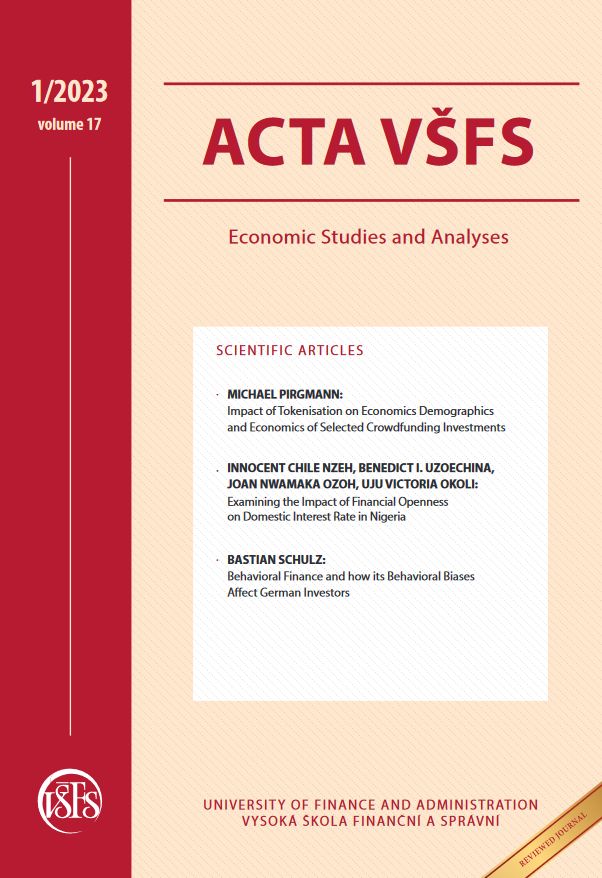Examining the Impact of Financial Openness on Domestic Interest Rate in Nigeria
Examining the Impact of Financial Openness on Domestic Interest Rate in Nigeria
Author(s): Innocent Chile Nzeh, Benedict I. Uzoechina, Joan Nwamaka Ozoh, Uju Victoria OkoliSubject(s): Economy, National Economy
Published by: Vysoká škola finanční a správní, a.s.
Keywords: Financial openness; interest rate; FDI; capital flows; capital account; ARDL
Summary/Abstract: The sensitive role played by domestic interest rate in the economy has made studies on its determinants paramount. This study therefore used the autoregressive distributed lag (ARDL) bounds framework to investigate the impact of financial openness on domestic interest rate in Nigeria over the period from 1980–2020. The study included three de facto financial openness measures, namely: foreign direct investment (FDI) inflows, FDI outflows and portfolio investment as well as one de jure financial openness measure, namely: capital account openness. The short-run results revealed that while FDI inflows had a negative but non-significant impact on domestic interest rate, the impact of FDI outflows was positive and significant. The short-run results also indicated that while foreign portfolio investment had a positive but non-significant impact on domestic interest rate, the impact of capital account openness was positive and significant. In the long-run, the study revealed that FDI inflows had a negative but non-significant impact on domestic interest rate. In another vein, while FDI outflows was found to impact on domestic interest rate positively, the impact of capital account openness was also found to be positive. The study therefore concludes that domestic interest rate in Nigeria was influenced positively by both FDI outflows and capital account openness in the two time horizons and this has implications for monetary policy setting. Based on these findings, the study recommends that apart from the traditional policies used in the control of domestic interest rate, monetary authorities in Nigeria should also regulate capital outflows in their quest to direct interest rate to a desired direction.
Journal: Acta VŠFS - ekonomické studie a analýzy
- Issue Year: 17/2023
- Issue No: 1
- Page Range: 23-38
- Page Count: 16
- Language: English

